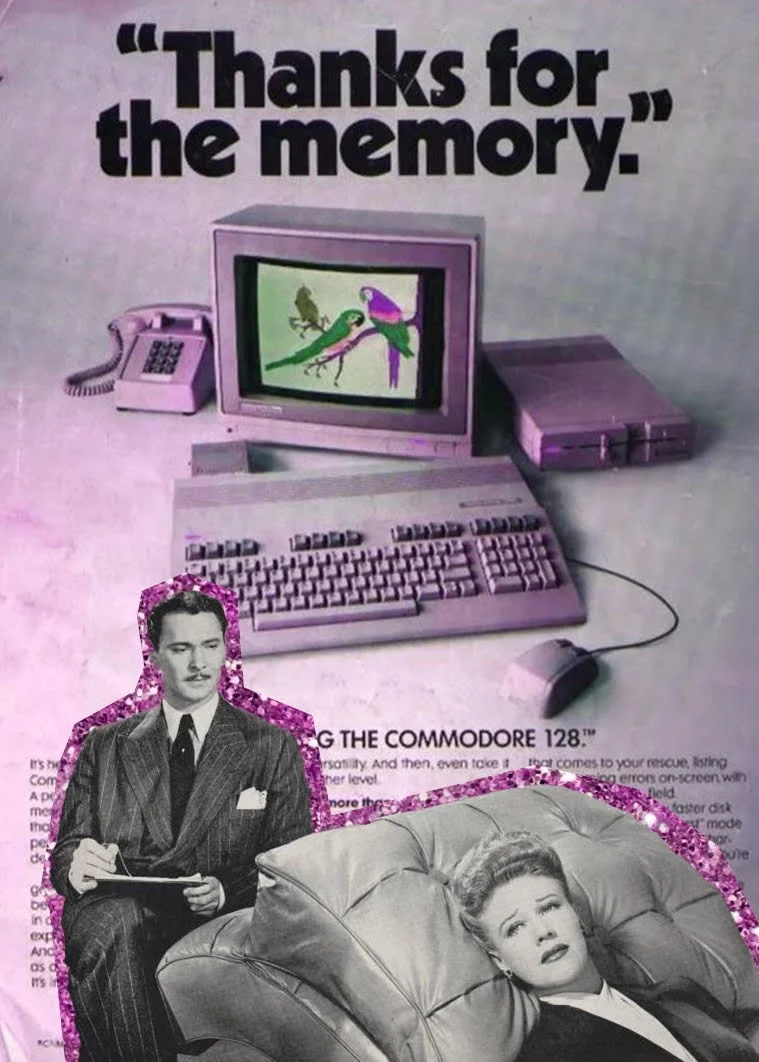Forget Me Not: On Memory in the Digital Age and Chronic Nostalgia
I was born in the year 2003, which puts me squarely in the middle of Gen Z. We’re ‘digital natives’, at home in the chaos, able to deftly navigate the ever-changing, half-living mediascape we have always inhabited.
Those of us born this side of James Cameron’s Titanic missed the margin for the garish, rudimentary chatrooms of the AIM and MSN Messenger era. If I see the abbreviation ‘asl’ on Twitter, I’ll assume OP (original poster) means an illogical shortened form of ‘as hell’, not ‘age/sex/location’, like a Myspace-acquainted millennial familiar with the nascent days of social media probably would. I have only known the internet as it is now, fluid and fully realised, a constant companion since the day I was granted unfettered use of the family PC at around seven.
As a preteen I frequented Tumblr, where I reblogged Ultraviolence lyrics superimposed over photos of emaciated, desaturated white girls. I am immortalised by a WeHeartIt collection I painstakingly curated at thirteen that gained just enough traction that I could never quite purge it from search engine results under my name – a relentless reminder of my very online adolescence. There are younger versions of myself encased in resin by relic sites; fingerprints of increasing size smudged haphazardly across countless corners of the internet, as innocent as Poptropica and as sinister as Omegle.
I sat through a slew of ‘e-safety’ seminars in high school, listening to my teachers solemnly caution us that ‘nothing on the internet ever really disappears’. What was meant to warn us of the perils of job-searching with an inculpatory digital footprint instead comforted me. Nothing committed to cyberspace could be erased. My capricious, perforate memory could not be trusted, but the internet probably could be.
The internet, I would find out, though not quite as fickle and porous as the human brain, is not infallible. I thoughtlessly digitised priceless photos and keepsakes, relegating my history to the flimsy, precarious care of social media apps and photo storage sites. As anyone who has also lost a laptop to a glass of water knows, this can be devastatingly dangerous.
Mourning the loss of the treasure trove of Photo Booth pictures that disappeared into the void as my screen dimmed for the last time felt reasonable. Similarly, I felt justifiably miserable when I realised I had forgotten the password to a virtual diary I kept as a child. These were precious memories that could not be recovered, who wouldn’t be upset about that?
I, however, also managed to grow attached to even the most impersonal kind of digital documentation: my Safari search tabs. I had accumulated several tab groups each with hundreds of windows, spanning four years and multiple devices. This eventually proved too much for the app to handle and I woke one Tuesday morning to find they’d all disappeared. Accompanying this realisation was a profound, inexplicable grief.
More often than I’d like to admit, I would look back through the windows to see what was occupying my thoughts at any given moment, and having deleted all the searches I considered forgettable, each tab was either a serendipitous rediscovery or a sober reminder.
‘christchurch mosque shooting’
‘clairo immunity release date’
‘avengers endgame trailer’
‘what is coronavirus’
The ease with which I can revisit the past has irrevocably impacted my relationship with my own history. Programmatically induced reminiscence by apps such as Snapchat and its ‘Memories’ ensure that I am annually reminded of every moment, notable or not, on its anniversary. My Photos app offers up the same ten or so days as ‘milestones’ on a rotation. I have photographed, recorded or otherwise documented everything I have done for the better half of my life. I can tell you what song I was overplaying each week since 2015, aided by the Spotify playlists I could never bring myself to delete. I can tell you exactly when every item in my closet was purchased, given time to sift through change room selfies and order confirmation emails. If I were to wake up tomorrow an amnesiac, I could probably piece together the story of my life, given time to delve into the dust-covered recesses of my phone. But what would be missing?
“The internet is not forever, it forgets just as we do, just as we’re meant to. I am learning to trust that what is important will remain.”
I think of a memory like a wooden figure with some sentimental value, something you can pick up and hold in your hand. Solid, but malleable, worn down and warped with each reckless touch, so that each time you revisit it you’re just remembering the last time you remembered it. Digital documentation acts as a kind of bubble-wrap, I have found, preserving the past and simultaneously obscuring it.
I took a couple dozen rows of photos in one week last summer. I took the same number over two months this winter. Scrolling back through my camera roll; I begin to measure time in these rows, collapsing it into neat squares until that week in the sun was the same length as two months of work and study. I am at no risk of forgetting what I was wearing that summer, where I went, or who I was hanging out with. I suspect, however, that I have already forgotten how I truly felt. Cheap, polyethylene digital memory objects block out and replace what is real with every indulgent reminiscence, and remembering becomes simply reminding.
On the other hand, the most tumultuous, turbulent period of my life is reflected only in a sparse iCalendar and a conspicuous gap in my camera roll, algorithmically illegible. Without the bubble-wrap, without Notes app entries or TikTok drafts, that wooden figure gathers dust on the shelf, perfectly intact. You couldn’t look through my phone and know what it was to be me at that time. Not even my lost Safari search tabs could have provided a full picture. Those disparate, disjointed flashes of memory cannot be stored outside of my own mind, and yet they feel more accessible and visceral than any moment I have carefully and coherently detailed within the confines of cyberspace.
Perhaps the loss of digital memorabilia is not only inevitable, but necessary. The internet is not forever, it forgets just as we do, just as we’re meant to. I am learning to trust that what is important will remain.
Words: Jordan Passauer


